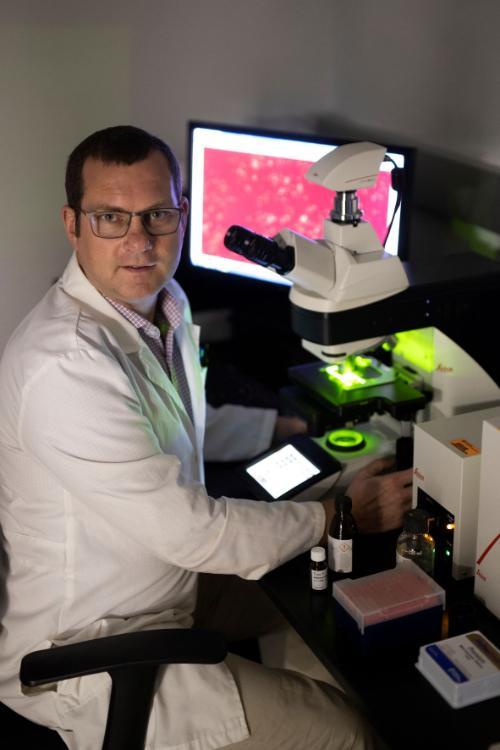Willm Martens-Habbena
Associate Professor
-
Teaching Interests
I teach and mentor students at the undergraduate and graduate level. My current teaching portfolio includes MCB3023 Principles of Microbiology (co-taught with Dr. Urich Stingl) and a new 6000-level course in Environmental Microbiology (co-taught with Dr. Foster, Dr. Christner and Dr. Stingl).
Furthermore, I mentor undergraduate and graduate students and provide opportunities for research experience in my laboratory at the Fort Lauderdale Research and Education Center. -
Education
- 1992–1999 Undergraduate studies in Biology, Gymnasium-level Higher Education, Philosophy
- 11/2001 Diplom (master equivalent) in Biology (1.0, best 10%). Diploma thesis: “Ancient cyanobacterial communities of the Baltic Sea as revealed by molecular fossils in sediments.” Advisor: Dr. Jörg Overmann.
- 07/2006 Doctoral degree (Dr. rer. nat.) in Environmental Microbiology (magna cum laude)
- Doctoral thesis: “Microbial communities at the chemocline of anoxic basins of the central
- Baltic Sea.” Advisors: Dr. Henrik Sass, Dr. Heribert Cypionka, Dr. Meinhard Simon
-
Description of Research
General area: My research combines molecular microbiology, microbial physiology and biogeochemistry to advance our understanding of microorganisms in complex ecosystems. By combining Next-Generation Sequencing approaches and bioinformatics tools with classical culture-based microbiology and direct activity measurements in the environment, my research aims to understand patterns of diversity, abundance and activity of microorganisms in natural and engineered systems. My research further aims to experimentally verify these patterns in laboratory and field experiments.
The overarching questions guiding my research are as follows:
1) Which interactions occur between microorganisms and other trophic guilds and how do those interactions influence ecosystem function?
2) Which forces do global change sea level rise and human activity impose on selection of phylogenetic and metabolic diversity in marine and terrestrial habitats?
3) How do these forces reflect on community metabolism and ecosystem performance?
4) How can we harness the microbial powers to conserve ecosystem function and benefit humanity?
If you are interested in gaining research experience, or would like to know more about my research, feel free to contact me any time. - Publications

Contact Information
954-577-6372
Office:
Fort Lauderdale Research and Education Center
3205 College Avenue
Fort Lauderdale, FL
